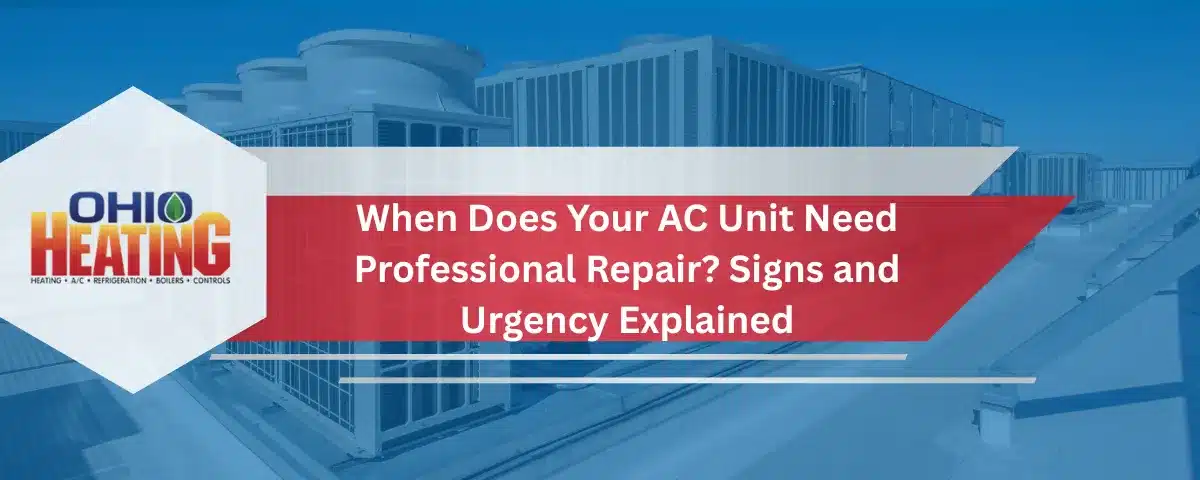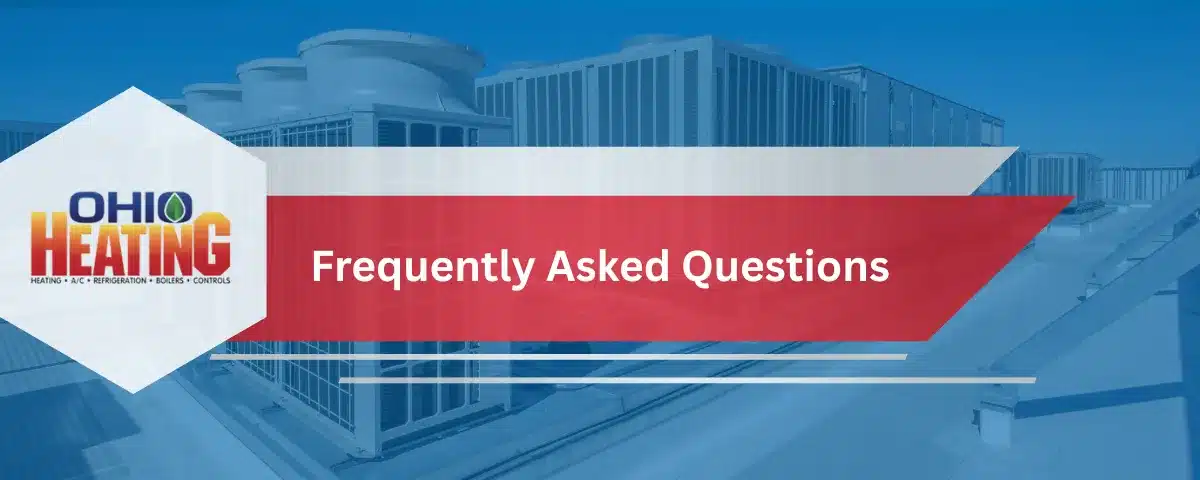In facilities management, keeping HVAC systems silent and efficient is crucial. Unusual sounds from an AC unit can signal underlying problems that not only hinder performance but may also lead to higher energy usage and expensive repairs. This article discusses common weird noises your AC unit may produce, outlines their causes, troubleshooting and repair methods, provides repair cost guidance, offers tips for choosing qualified technicians, and recommends maintenance practices for preventing future issues. Facilities managers will learn to identify problems such as compressor issues, refrigerant leaks, fan malfunctions, and duct disturbances. Detailed explanations, comparative tables, and checklists help managers decide when to troubleshoot basic issues and when to call professional services. Transitioning from observation to diagnosis, the article offers actionable guidance for resolving AC noises, ensuring continued business operations and energy efficiency.
What Are the Most Common Weird Noises Your AC Unit Can Make?

When an AC unit produces odd sounds, it indicates potential mechanical or operational issues. These noises rattling, hissing, clicking, buzzing, and banging each point to specific problems. Differentiating these sounds is essential for early detection and timely corrective action.
What Does a Rattling Noise in Your AC Unit Mean?
A rattling noise generally suggests that loose parts or debris are colliding inside the unit. This may be caused by a loose fan blade, unsecured panels, or foreign items lodged in the casing. It can also result from misaligned compressor mounts. Over time, such vibrations can lead to additional damage if not addressed. Facilities managers should inspect and secure any loose parts immediately. HVAC maintenance records show that prompt action on rattling issues can significantly lower the need for future repairs.
Why Is My AC Unit Making a Hissing Sound?
A hissing sound is typically a sign of refrigerant leaks or pressurization issues. Gas escaping through small openings or cracks in tubing and seals causes the hissing. This warning suggests low refrigerant levels, which affect cooling performance and system efficiency by forcing the compressor to work harder. An immediate inspection of refrigerant lines and seals with leak detectors is recommended since even slight refrigerant loss can lower efficiency noticeably.
What Causes Clicking Noises in an AC Unit?
Clicking sounds may result from electrical relays cycling on and off or the expansion and contraction of metal parts during temperature changes. These intermittent clicks often occur as compressors or fans start or stop and may also signal issues like damaged capacitor contacts or loose wiring. Persistent clicking should be evaluated as it may signal looming electronic failures.
How to Identify Buzzing Sounds From Your AC Unit?
Buzzing noises are usually linked to electrical components or motor problems. A constant buzz may indicate that the fan motor or compressor is overloaded due to failing capacitors or circuit issues. Such sounds suggest inefficient operation and may eventually lead to overheating or motor failure, so it is important to schedule electrical component checks if buzzing persists.
What Does a Banging Noise Indicate in Your AC System?
A banging noise is alarming and often indicates severe internal problems such as a failing compressor or a fan blade colliding with the housing. This noise typically occurs during the start-up cycle when the compressor is under load. The force of the bang can damage refrigerant lines or the unit’s structure. Immediate professional inspection is essential to prevent catastrophic system failure and ensure safety.
What Are the Main Causes Behind Weird Noises in Your AC Unit?

Identifying the source of AC noise requires examining its individual components and systems. Common causes include issues with the compressor, refrigerant levels, fan operation, duct integrity, and electrical systems. Each of these elements affects the overall noise produced and can indicate different malfunctions.
How Do Compressor Problems Cause AC Noises?
The compressor is the heart of the AC system, circulating refrigerant to cool the space. Wear, misalignment, or internal debris can cause it to produce grinding, whining, or banging noises. These disturbances typically result from mechanical failure or irregular pressure fluctuations. Studies indicate that neglecting compressor issues leads to higher repair costs.
Can Refrigerant Leaks Make Your AC Unit Noisy?
Refrigerant leaks can create hissing or whistling sounds as escaped gas moves from confined pathways. Leaks force the compressor and fans to overwork, occasionally causing clicking sounds from short cycling. Routine refrigerant checks every six months can help detect leaks early and minimize repair expenses.
What Fan Issues Lead to Unusual AC Sounds?
Damaged or faulty fans often generate rattling or buzzing noises. Problems such as misaligned or dirty fan blades and worn bearings can disrupt the ideal spinning speed and balance. Regular cleaning and timely replacement of fan components improve airflow efficiency and reduce noise.
How Does Ductwork Affect AC Unit Noise Levels?
Poorly installed or connected ductwork can amplify sounds from the AC unit. Vibrating ducts or incorrect air speeds can produce echoes that make internal noises louder. Leaky or uninsulated ducts may also allow external sounds to enter occupied spaces. Frequent duct inspections and proper sealing help reduce these issues.
What Electrical Issues Can Cause AC Noises?
Loose wiring, failing capacitors, or malfunctioning relays can produce clicking or buzzing sounds. Problems in the control boards or fan speed regulators may lead to erratic performance and abnormal noises. Immediate testing of electrical components ensures they stay within manufacturer tolerance, reducing both noise and safety hazards.
How Can You Troubleshoot and Diagnose Weird Noises in Your AC Unit?

Proper troubleshooting of AC noise involves systematic observation and diagnostic checks. Facilities managers should use both visual and auditory clues along with basic tools to pinpoint the problem.
What Basic Steps Can You Take to Identify AC Noise Sources?
Start with a visual inspection to check for loose parts, debris, or obvious wear in components like compressor mounts and fan blades. Then, listen to determine if the noise occurs at startup, during operation, or shutdown. Check for refrigerant leaks by examining piping for oily residues and using ultrasonic detectors, and verify that all electrical connections are secure. A checklist for noise diagnosis makes this process faster and reduces downtime.
A simple diagnostic checklist includes: 1. Inspecting all external panels and mounting hardware. 2. Examining fan blades for dirt or damage. 3. Noting the noise pattern and timing. 4. Using a refrigerant leak detector. 5. Checking electrical connections and control boards.
When Should You Stop DIY and Call a Professional Technician?
While basic checks can resolve minor issues, persistent noises, especially repeated compressor sounds, humming electrical components, or signs of refrigerant leakage, require professional diagnosis. Continuing DIY efforts may create safety hazards and worsen the problem. Professionals have the advanced diagnostic tools and expertise needed to safely handle refrigerants and electrical systems.
How to Use Visual and Auditory Clues to Diagnose AC Problems?
Combining visual observations with the sound profile enhances diagnosis. For example, a banging noise accompanied by visible compressor vibrations likely confirms internal component failure, while clicking during startup may indicate failing electrical relays. Tools like vibration analyzers and infrared cameras further reveal heat signatures that indicate friction or electrical stress, streamlining the repair process.
What Tools or Methods Help Detect AC Unit Issues?
Advanced tools such as ultrasonic leak detectors, vibration analyzers, and infrared cameras help accurately locate problem areas. Multimeters and clamp meters check electrical currents, while borescopes allow inspections of confined spaces for wear or debris. Utilizing these tools minimizes misdiagnosis and ensures effective repairs, saving both time and money.
When Does Your AC Unit Need Professional Repair? Signs and Urgency Explained

Not every abnormal noise requires immediate professional repair, but certain persistent or severe symptoms demand urgent attention to prevent further damage or safety hazards.
What Are the Most Urgent Signs That Your AC Needs Repair?
Urgent red flags include: • Persistent banging noises • Continuous hissing regardless of operating cycles • High-pitched buzzing that does not subside • Noticeable drops in cooling efficiency or overheating components
For example, if the compressor emits a constant grinding noise along with rattling, this may signal critical failure. In such cases, stop DIY troubleshooting and schedule professional repairs immediately.
How to Know if Compressor Replacement Is Necessary?
A failing compressor often produces grinding, whining, or loud banging during startup. Accompanying signs such as reduced cooling output or increased energy consumption indicate compressor degradation. Technicians use pressure gauges and diagnostic software to assess compressor efficiency; studies suggest that replacing a failing compressor can boost cooling performance and lower energy consumption considerably.
When Is a Refrigerant Recharge or Leak Repair Required?
Hissing noises paired with low cooling performance often signal refrigerant leaks. Visible signs of oil residue on tubing further support this diagnosis. In these cases, a refrigerant recharge and leak repair are necessary to avoid compressor strain and complete system failure. Even a small leak can reduce cooling efficiency noticeably, so prompt professional intervention is important.
How Do Fan and Ductwork Repairs Affect AC Performance?
Issues with fan performance or duct alignment can cause excessive noise and poor airflow. Repairing fan bearings or blades and ensuring proper duct connections minimizes vibrations and acoustic feedback, leading to improved airflow efficiency and reduced noise. Regular maintenance of these components not only reduces noise but also prolongs the AC unit’s lifespan.
What Are the Risks of Ignoring Weird Noises in Your AC Unit?
Ignoring abnormal sounds can lead to severe equipment failure, potential safety hazards, and increased energy consumption. Minor issues like refrigerant leaks or loose fan components can escalate into compressor failures or even electrical fires, resulting in higher maintenance costs and premature breakdowns. Early detection and repair are key to avoiding prolonged disruptions and costly emergency fixes.
How Much Does It Typically Cost to Repair an AC Unit Making Weird Noises?

Repair costs vary significantly depending on the specific issue, brand, and age of the unit, as well as regional factors. Minor repairs like tightening loose parts or replacing fan blades are relatively low-cost, whereas compressor or refrigerant system repairs can be much more expensive. Facility managers should consider both immediate repair expenses and potential long-term savings from improved energy efficiency.
What Factors Influence AC Repair Costs?
Key factors include: • Type and severity of the issue • Cost of replacement parts • Labor charges • Need for emergency service • Unit age and warranty status
For example, compressor replacements might range from $700 to $1,500, while simpler fan repairs may cost between $150 and $300. Environmental conditions such as high humidity or dust can also raise maintenance costs due to more frequent servicing needs.
How Do Repair Costs Vary by Noise Type and Cause?
Different noises generally correspond to different repair costs. A hissing noise from a refrigerant leak might cost between $250 and $500, while a buzzing or grinding noise indicating compressor or electrical issues may lead to repairs costing between $800 and $1,500. Comprehensive diagnostics may add an additional fee, but ensure the repair addresses the underlying problem effectively.
Are There Affordable Maintenance Plans to Prevent Noisy AC Repairs?
Many HVAC providers offer maintenance plans that include routine inspections, cleaning, and servicing. Regular filter replacements, duct inspections, and lubrication of moving parts can reduce the risk of unusual noises by up to 40%, stabilize operational costs, and extend the system’s lifespan. Facilities managers are encouraged to choose plans that offer transparent pricing and thorough service coverage.
How to Get Transparent Pricing From AC Repair Technicians?
Begin by requesting detailed written estimates from multiple qualified contractors. Ask about parts, labor breakdowns, warranties, and any additional fees. Comparing reviews and verifying credentials helps secure competitive pricing and ensures a professional, transparent repair process.
Below is a table summarizing repair cost components based on common noise issues:
| Noise Type | Potential Cause | Estimated Repair Cost Range | Impact on Efficiency | Urgency Level |
|---|---|---|---|---|
| Rattling | Loose parts, fan blades | $100 – $300 | Moderate | Low |
| Hissing | Refrigerant leak | $250 – $500 | High | High |
| Clicking | Electrical relay/capacitor issue | $150 – $400 | Moderate | Medium |
| Buzzing | Motor or fan failure | $200 – $600 | High | High |
| Banging | Compressor or fan collision | $700 – $1500 | Critical | Urgent |
How to Find and Choose a Qualified AC Repair Technician for Noisy Units?

Choosing a qualified AC repair technician is key to minimizing downtime and ensuring lasting solutions. This process involves verifying certifications, reviewing experience with specific AC brands, and confirming the technician’s commitment to transparent pricing and quality repairs.
What Qualifications Should a Reliable AC Technician Have?
A reputable technician should hold certifications from recognized organizations such as NATE or the EPA for refrigerant handling. They should have proven experience in commercial HVAC systems, with documented training in electrical, refrigerant, and mechanical diagnostics. Reviews and references from previous clients further assure quality service.
How to Verify Experience With Specific AC Brands and Models?
Ask technicians directly about their experience with your AC brand or model. Many companies can provide case studies, testimonials, or portfolios that detail relevant repair histories. Referrals from other facilities managers and reviewing manufacturer partnerships can also confirm specialized expertise.
What Questions Should You Ask Before Hiring an AC Repair Service?
Prior to hiring, consider asking: – How many years have you serviced similar systems? – Can you provide references or case studies for similar issues? – What is your diagnostic process and estimated repair time? – How is your repair estimate structured and are there any hidden fees? – What warranty or guarantee is offered on repairs?
How to Check Reviews and References for Local AC Repair Providers?
Start by reviewing online platforms such as Google, Yelp, and the Better Business Bureau. Request references from recent clients in similar settings and seek referrals from trusted industry peers to assess the technician’s punctuality, quality of work, and customer service.
What Maintenance Tips Help Prevent Weird Noises in Your AC Unit?

Regular maintenance is the most effective way to prevent unusual AC noises and ensure long-lasting operation. Proactive measures not only stave off expensive repairs but also improve overall system efficiency.
How Often Should You Service Your AC Unit to Avoid Noises?
AC units should be serviced at least twice a year, once before the cooling season and once during peak usage. This servicing includes cleaning filters, checking refrigerant levels, lubricating moving parts, and inspecting electrical connections. A proactive maintenance schedule can reduce unexpected repairs by over 30% and keep noise levels low.
What Are the Key Steps in an AC Unit Maintenance Checklist?
A comprehensive maintenance checklist should include:
1. Filter Replacement: Replace or clean filters every 1-3 months to maintain airflow and reduce motor stress.
2. Fan Inspection: Clean and check fan blades to ensure they are free of debris and balanced properly.
3. Refrigerant Check: Regularly inspect refrigerant lines for leaks or deterioration.
4. Electrical Connection: Verify that wiring, capacitors, and relays are secure and functioning.
5. Ductwork Examination: Inspect ducts for leaks or blockages and ensure connections are tight to avoid amplified noise.
How Does Regular Filter Replacement Reduce AC Noise?
Clean filters prevent the system from overworking. When filters become clogged, motors run faster, generating extra noise. Regular replacement helps maintain optimal airflow and reduces compressor strain, resulting in quieter operation.
What Role Does Proper Ductwork Cleaning Play in Noise Prevention?
Dust and debris in ductwork can cause airflow restrictions and unwanted echoing. Clean, well-sealed ducts maintain proper acoustics and prevent redundant vibrations, contributing greatly to noise reduction and overall system efficiency.
Below is a table summarizing maintenance tips and their benefits:
| Maintenance Task | Frequency | Key Benefit | Efficiency Improvement | Noise Reduction |
|---|---|---|---|---|
| Filter Replacement | Every 1-3 months | Improved airflow; reduced motor stress | Up to 25% | 20–25% |
| Fan Inspection & Cleaning | Quarterly | Balanced fan operation; debris-free | 15–20% | 15–20% |
| Refrigerant Check | Biannually | Prevents leaks; stable compressor load | 10–15% | 10–15% |
| Electrical & Component Inspection | Annually | Mitigates electrical faults; ensures safety | 10–20% | 10–20% |
| Ductwork Cleaning | Annually | Reduces vibrations; prevents echoing | 10–15% | 15–20% |
Frequently Asked Questions

Q: How can I tell if the noise in my AC unit is minor or a sign of serious damage? A: Minor noises during startup or shutdown are often normal. However, persistent hissing, grinding, or banging are red flags for significant issues such as refrigerant leaks or compressor failure. When in doubt, consult an HVAC professional.
Q: What basic DIY steps can I take before calling a repair technician? A: Start with a visual inspection for loose parts, clean the filters, and check for debris around the fan. Monitor the noise’s pattern and document its characteristics. If these steps do not resolve the issue, it’s best to schedule a professional inspection.
Q: Are regular maintenance plans effective in reducing AC unit noise? A: Yes, regular maintenance, especially timely filter replacement, fan inspections, and ductwork cleaning, can reduce noise issues by an estimated 20–25% while enhancing system performance.
Q: What tools are typically used by professionals to diagnose noisy AC units? A: Professionals commonly use ultrasonic leak detectors, vibration analyzers, infrared cameras, and multimeters to accurately pinpoint issues such as refrigerant leaks, electrical faults, or component wear.
Q: How long does it usually take to repair an AC unit that makes weird noises? A: Repair times vary with the severity of the issue. Minor repairs may be completed in a few hours, while major repairs like compressor replacements or refrigerant leak fixes can take one to two days.
Q: Can improved maintenance really extend the life of an AC unit and reduce repair costs? A: Absolutely. Routine maintenance not only reduces noise but can extend the unit’s lifespan by up to 15–20% and lower repair costs by catching issues early.
Q: Is it safe to continue running an AC unit that is making odd noises? A: Running an AC unit that makes abnormal noises can further damage the system or create safety hazards, such as electrical faults or compressor failure. If you hear persistent unusual noises, shut down the unit and have it professionally assessed.
Final Thoughts
Efficient HVAC operation is critical for a comfortable and productive facility. Recognizing and addressing weird AC noises early can prevent costly breakdowns, reduce energy consumption, and ensure safety. By following systematic troubleshooting, maintaining regular service schedules, and calling in professional repairs when needed, facilities managers can extend the life and performance of their AC systems. Proactive maintenance and qualified service are essential investments in maintaining a reliable, energy-efficient HVAC system.
